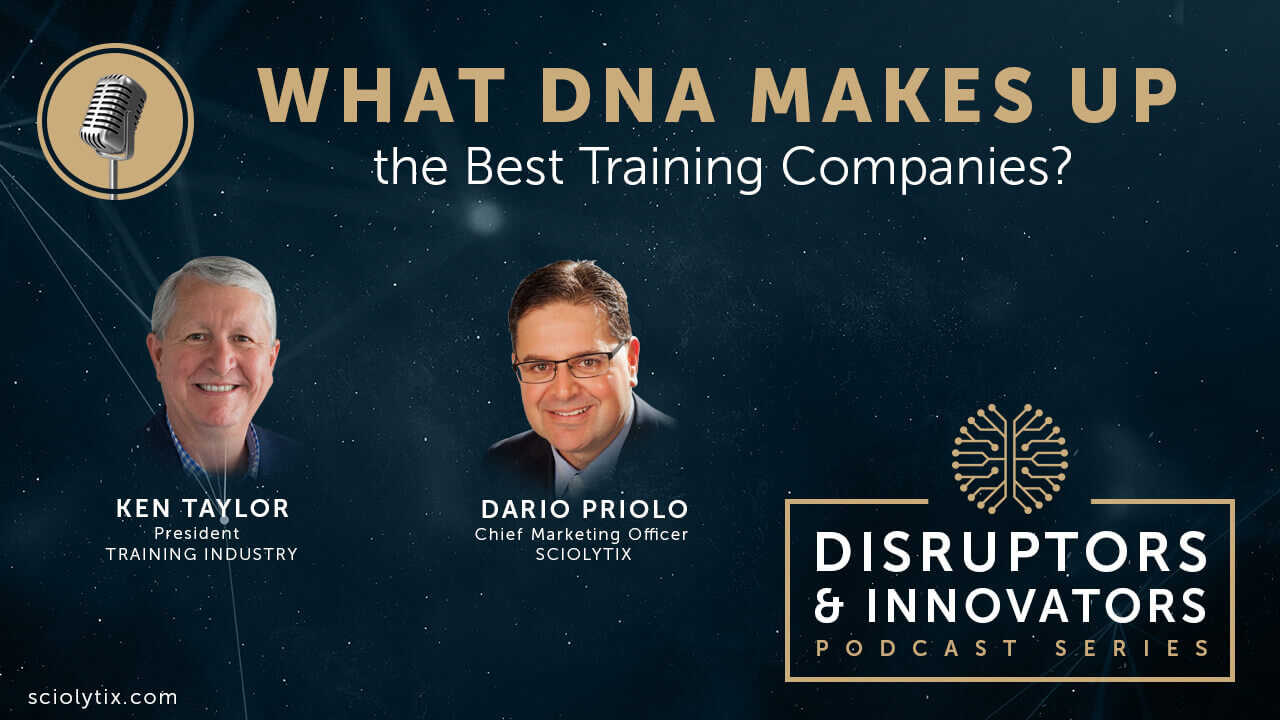
We’ve had the privilege of having several in-depth conversations with various training gurus, leaders, and professionals over the last few years, and in that time, we’ve covered topics ranging from training to methodologies, improving cold call skills, and more. One topic that has come up a lot lately—especially considering what we do here at Sciolytix with learning and development—is what separates good training companies from great ones?
What’s the secret sauce that will take a training company from better than most to greater than all?
What are the great training companies doing differently to help them and their clients thrive now and moving forward?
As we’ve learned, there are plenty of ingredients that come into play when trying to concoct that secret sauce. We spoke to Bob Kelly with Sales Management Association recently, and he gave us some great stuff on how the best training companies see themselves as being in the business of change. To piggyback off that, we invited the President of Trainingindustry.com, Ken Taylor, to share additional insight on our Disruptors & Innovators podcast.
Great Training Companies Have Great Content
When we say great content, we don’t just mean having the best ideas. It’s how that training content is structured.
- It’s multimodal (not dependent on in-person instructor-led training).
- The content can be personalized.
- It can be customized to meet a client’s specific needs.
These training companies are constantly asking themselves, “How can I use my arsenal of training intelligence to solve their problems?” They literally see their platform as a set of tools that they can bring to the table in a combination of ways to meet or more closely meet a client’s need.
Great Training Companies Try to Be the Best Possible “Fit”
When Ken says this during the podcast, he means that the best training companies differentiate themselves by taking the time to understand the challenges and culture at a client organization and create solutions that address these needs but also will work given the culture. For example, a process heavy solution may work in an engineering culture but may not fit a creative culture in say an advertising agency.
Sure, they are eager to create a training environment for all companies. But they’re also not interested in trying to fit a square peg into a round hole. They want to have confidence in the people they’re working with, and vice versa.
Great Training Companies Have Excellent Instructors with Practical Experience
When possible, you want to work with someone who has been in your shoes. They understand your pain points, the areas you may lack, and how to improve the daily process. They can read the room and make sure they’re fulfilling everyone’s needs. Even if the training instructor doesn’t know the job exactly, they know enough about it, the environment, and the nature of the role that they can bring real examples to the table that help make the content relevant.
As Ken pointed out, “The most common slam on organizations or poor training companies is that the content may have been correct, but it wasn’t relevant to me. Great instructors can take almost any content and make it super relevant to their audience. And that’s usually because they bring shared stories to the table.”
Great Training Companies Deliver Content in Multiple Ways
Great training companies think about their content from a multimodal perspective and create a broad enough portfolio to ensure that whatever they pitch will align with the customer’s specific needs. For example, they develop content that can be used in-person, on an e-learning platform, or even in a hybrid situation. This way, they deliver the same content in multiple ways to match the need of the customer no matter what.
Great Training Companies Have a Core Consistency of Experience
They are very conscious of where the bar has been set, and they ensure everyone that goes to the program has a similar experience every time. This is especially true when there is an international rollout. They are constantly evolving their content while remaining focused on what the learner’s experience will be. They’re asking themselves questions like:
- Why does it have to be three days long?
- Why can’t it be 10 hours of e-learning at their pace?
- What type of employee downtime are we creating with this?
Great Training Companies Have Plugged-in Admins
They have highly tuned administrative teams that can understand how information needs to get to customers. They are continuously looking to introduce new ways and new efficiencies to make sure they can handle large-scale rollouts seamlessly on behalf of the clients.
Thanks for reading. And to learn more about what great training looks like, visit www.sciolytix.com.